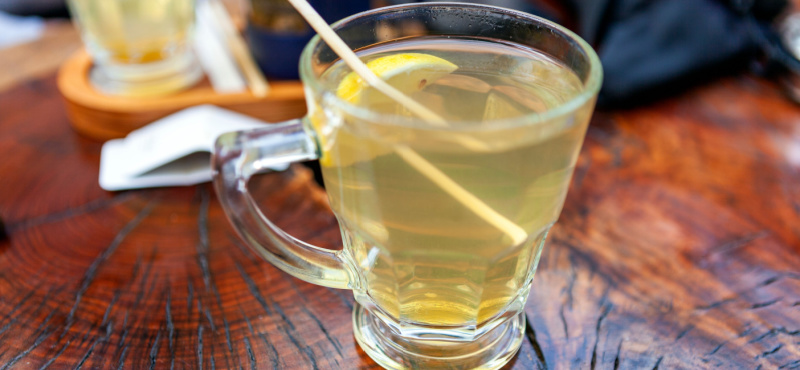Many of us enjoy lemonade every now and then. While lemonade is often sweet and sugary, most of us do not think that the lemonade would contain caffeine and possibly kill us. Unfortunately, that is what happened to a Florida man. He drank Panera Bread’s Charged Lemonade, unknowingly consuming high levels of caffeine and causing him to suffer a fatal heart attack. His family has filed a wrongful death lawsuit in Superior Court in Delaware against Panera Bread.
The lawsuit was filed in December after a 46-year-old man from Fleming Island, Florida, drank three of the drinks at Panera Bread on October 9. While he was walking home, he suffered a fatal cardiac arrest.
To be fair, the man did suffer from several medical issues. He suffered from a chromosomal deficiency order, developmental delay, and ADHD. He also had high blood pressure. The man did not consume energy drinks at all. At the time of the man’s death, he had lived on his own and worked as a grocery store employee for nearly 17 years.
The Charged Lemonade was not advertised as an energy drink, so there was no way for the man to know that it was highly caffeinated. The beverage was offered alongside Panera Bread’s non-caffeinated or less-caffeinated drinks, and there were no warnings about any potentially dangerous effects of drinking concentrated amounts of caffeine and sugar.
This is not the first time that Panera Bread’s Charged Lemonade has been blamed for a death. In October, a wrongful death lawsuit was filed by the family of a 21-year-old college student who died in September 2022 after consuming the beverage. The woman suffered from a heart condition, but there was allegedly no warning of the drink’s caffeine levels or possible dangers. The lawsuit claimed that the lemonade contained more caffeine than Red Bull and Monster energy drinks combined.
How Dangerous is the Charged Lemonade?
A healthy adult can safely consume 400 milligrams of caffeine a day. This is the same as four cups of coffee. Sugars should make up less than 10% of total calories, meaning 50 grams for a diet of 2,000 calories.
However, this can vary, as some people are more sensitive to caffeine than others. Plus, some people may have a harder time breaking it down, causing them to have more effects.
Children are especially susceptible to the effects of caffeine. According to the American Academy of Pediatrics, there is no proven safe dose of caffeine for children. Those under the age of 12 should try not to consume caffeine at all. Children should not be consuming energy drinks. Those between the ages of 12 to 18 should not have more than 100 mg of caffeine a day. High levels of caffeine can cause disrupted sleep, dehydration, anxiety, digestive problems, heart palpitations, and high blood pressure. These symptoms can be especially dangerous for children with heart conditions.
Lawsuits filed against Panera Bread claim that a large, 30-ounce Mango Yuzu Citrus Charged Lemonade contains 390 milligrams of caffeine and 124 grams of sugar. There is also an ingredient list posted on the company’s website, but another Panera page listed the same product and size as containing 235 milligrams of caffeine and 74 grams of sugar, which is a huge difference. However, the higher caffeine and sugar counts involve the same product without ice.
Panera’s website now states that beverages labeled as Charged Sips should be consumed in moderation. They are not recommended for children, pregnant or nursing women, and those sensitive to caffeine.
The website information and banners have been added since the first lawsuit, so Panera Bread is taking steps to remedy the situation to some degree. The company has also taken action to decrease the caffeine in the drink. The lemonade has also been placed behind the counter now so customers cannot access it.
The Food and Drug Administration (FDA) is investigating the cases. The FDA is saddened to hear of the deaths and takes reports of illnesses or injuries from regulated products very seriously. The agency monitors the marketplace of FDA-regulated products and takes action as appropriate. It may even collaborate with the Federal Trade Commission regarding marketing claims. The FDA is gathering information about both deaths.
Panera denies any connection between its lemonade and the two deaths. Panera expressed sympathy for the man’s family but disputed a link between his death and its caffeinated drinks.
The company allegedly investigated the situation and believes the man’s death was not caused by one of the company’s products. Panera Bread also believes that both lawsuits have no merit, with the company standing firmly by the safety of its products.
Contact Us Today
A person should not die from drinking a beverage that is sold with other sodas and with no warning label. Restaurants, stores, and other businesses that sell drinks need to be mindful of caffeine, which can be hard for many people to tolerate in large amounts.
At Brill & Rinaldi, The Law Firm, we understand that a loved one’s unexpected and sudden death can be a devastating situation, especially when the death could have been prevented. We will preserve your legal rights and ensure you get full compensation for your losses. To schedule a free consultation with us, fill out the online form or call (954) 876-4344. We have offices in Weston, Coral Gables, and Daytona Beach.

